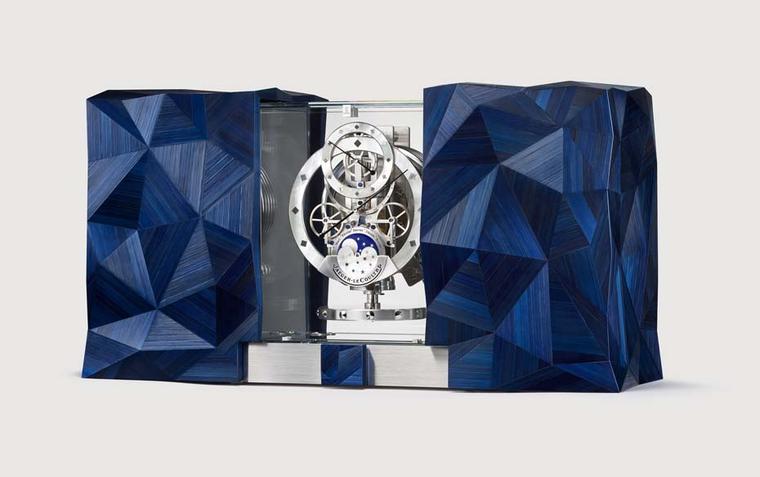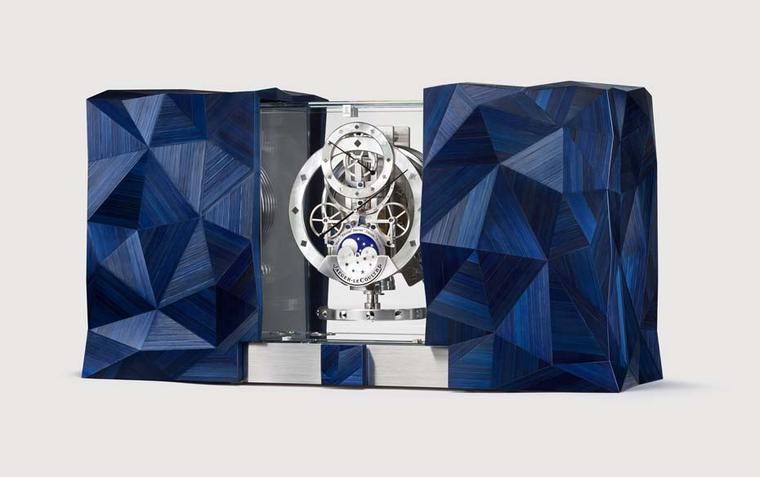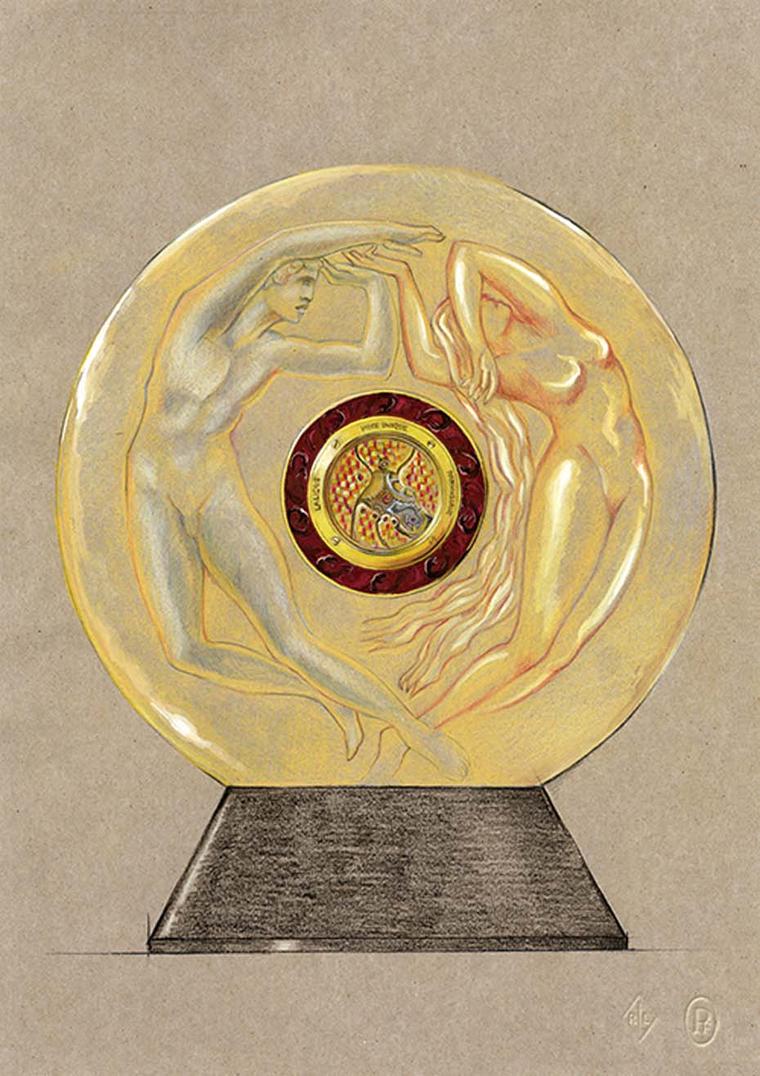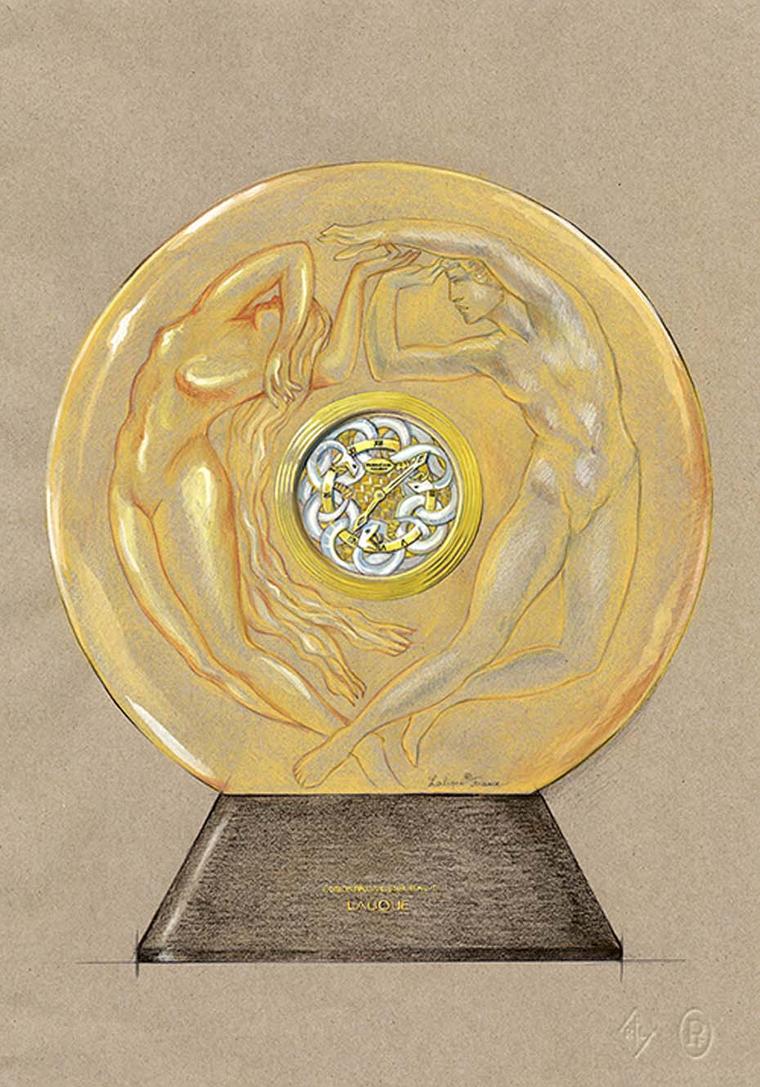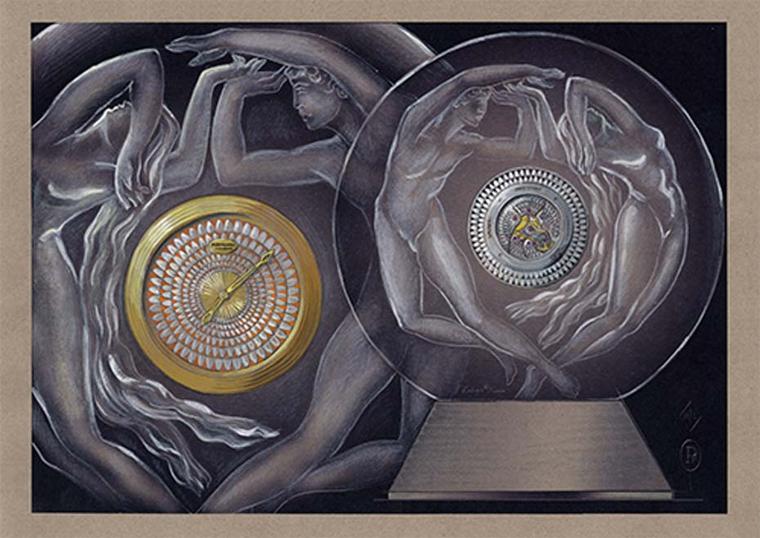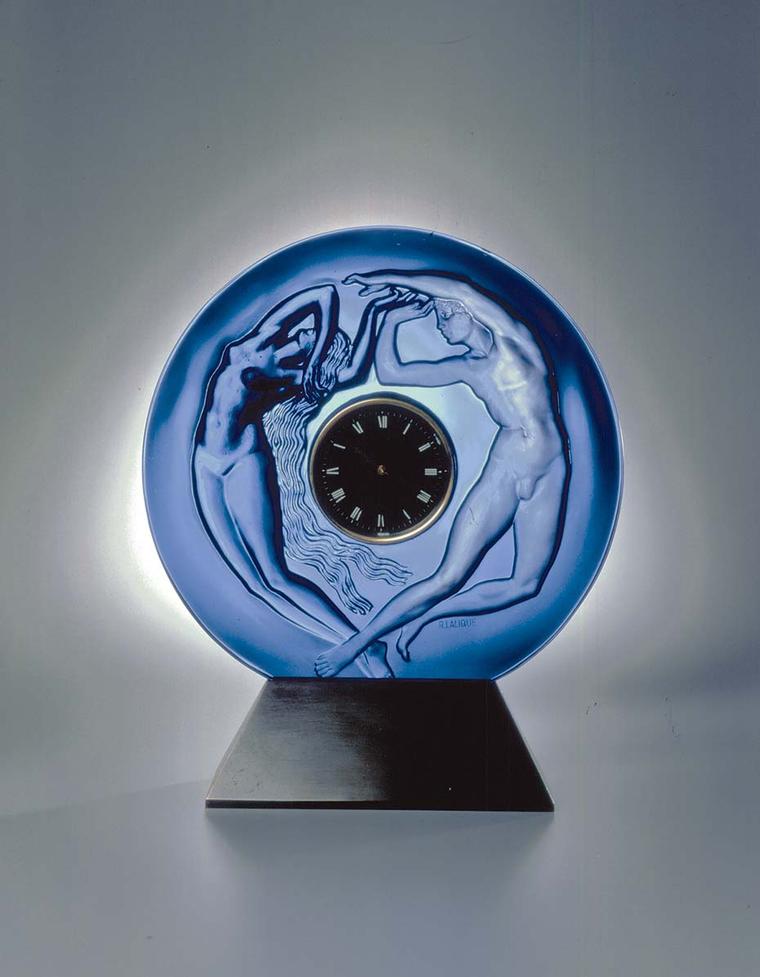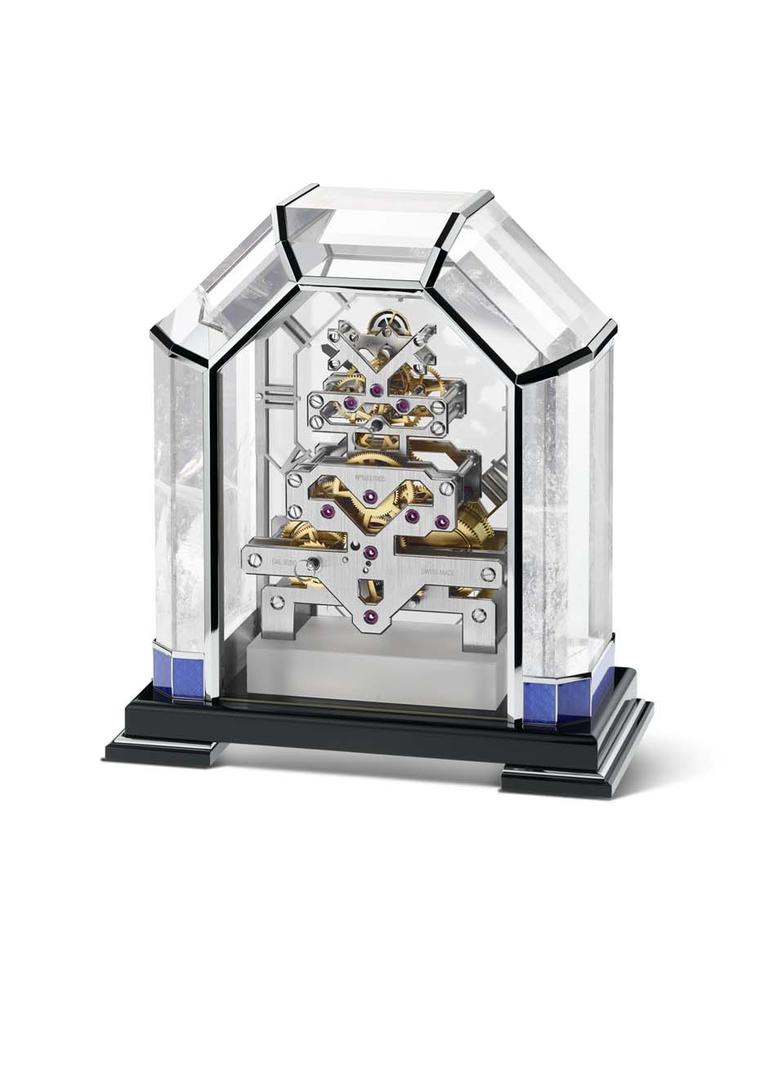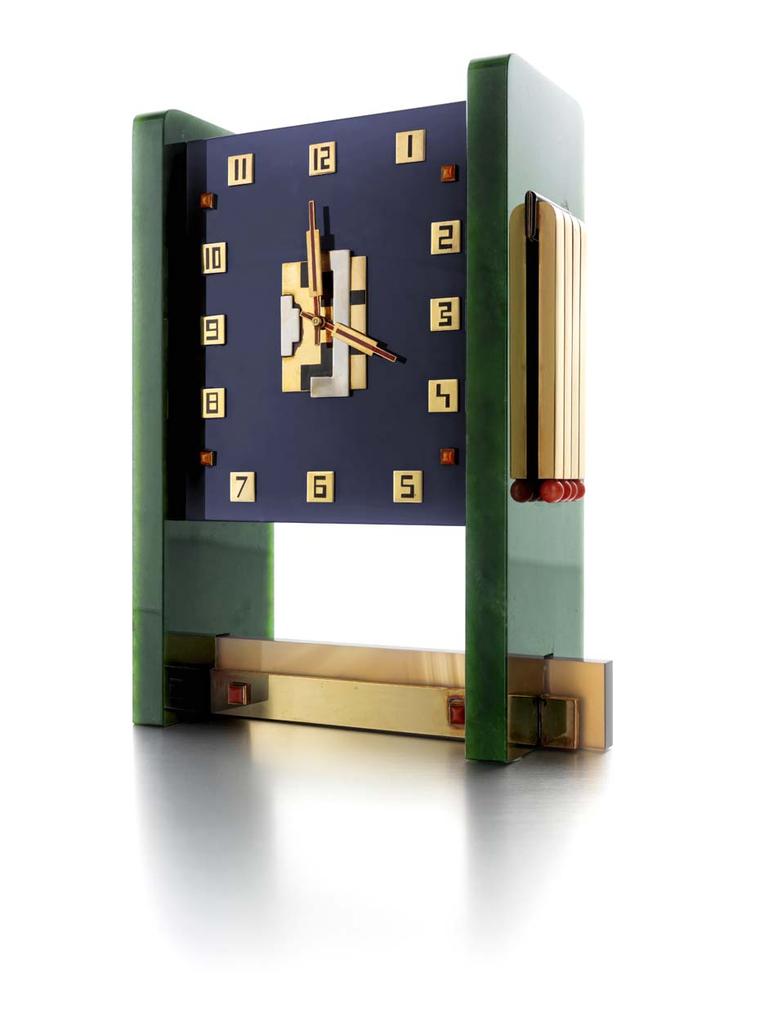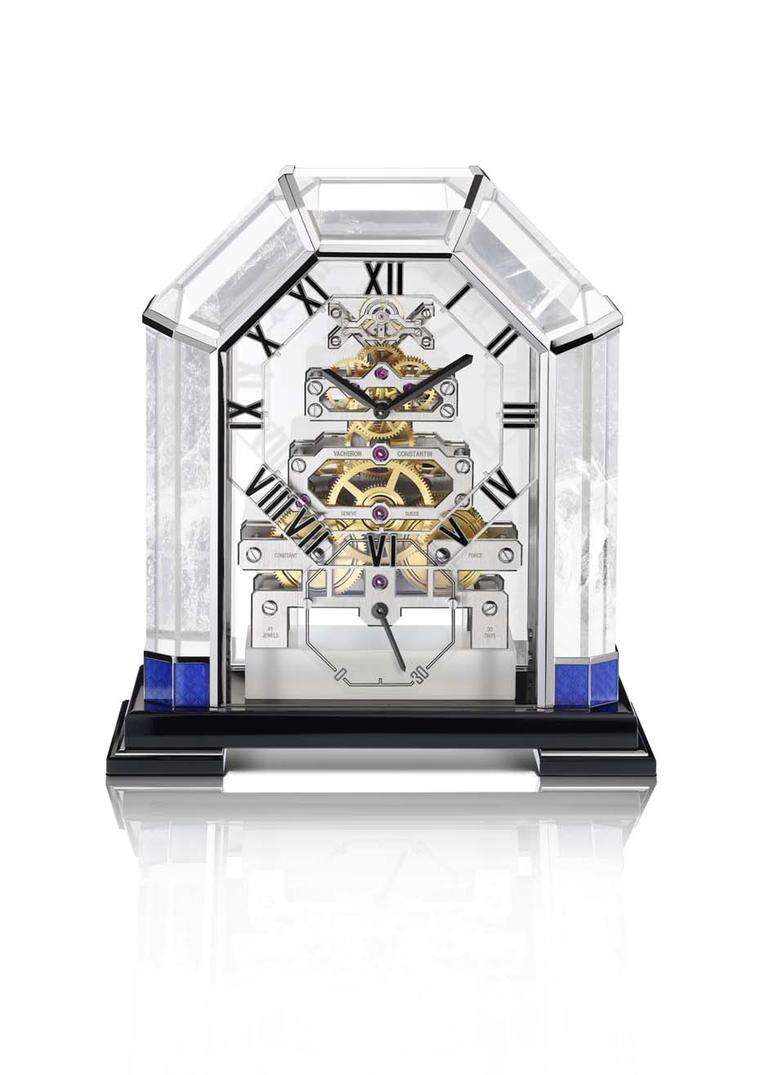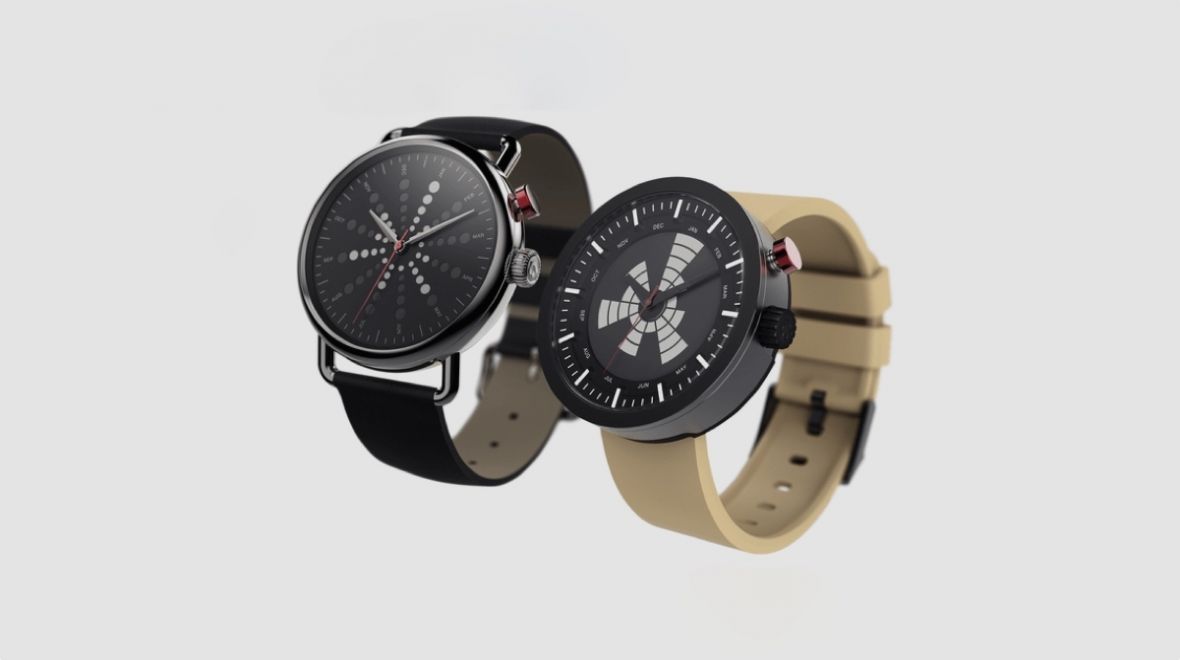By Rebecca Doulton in Madrid
I wonder how many of us can remember the reassuring tick tock of a mantelpiece clock?
Sadly, artistic table clocks, like drinks trolleys and soda siphons, fell quietly out of fashion, stored for posterity in dusty attics.
However, the good news is that the table clock seems to be enjoying something of a renaissance, and a surge of antique and new table clocks are gracing mantelpieces once again. Thanks to their generous dimensions, table clocks allow artists and watchmakers a larger canvas to showcase their skills, culminating in some truly spectacular masterpieces of timekeeping.
Siegelson New York presented some magnificent Art Deco table clocks at the DJWE in Doha this year, which included this magnificent nephrite, agate, gold, enamel and coral desk clock by Verger Frères for Boucheron in 1929, with a movement made by Vacheron Constantin.
In light of its 260th anniversary, Vacheron Constantin watches revisited one of its Art Deco table clocks from 1933 and presented the Arca, a unique and beautifully crafted clock made from rock crystal. Arca is the first of a series of 12 table clocks Vacheron Constantin will be releasing in the future.
The natural translucent beauty of the rock crystal – which took gem hunters more than a year to source – requires the dexterity of a master stonecutter and a master glassmaker to reveal its intrinsic beauty and exalt its natural radiance.
Framed by a crystal arch resting on an obsidian plinth, with blue Grand Feu enamelling on the piers, the view of the open-worked, manual-winding calibre 9260 is spectacular. Composed around seven hand-bevelled bridges, the exceptional power reserve of 30 days means that the clock will only have to be wound once a month. In case you forget, there is a power reserve indicator just below the dial.
Jaeger-LeCoultre watches did something quite exceptional in 1928 by creating the first clock to extract its energy from variations in room temperature, making timekeeping practically perpetual. Invented by Jean-León Reutter, Jaeger-LeCoultre immortalised this breakthrough invention with its magical Atmos clock.
This year, Jaeger-LeCoultre watches celebrates the cosmos with the Atmos Marqueterie Paille table clock. The two sky blue wooden cabinets at either side of the clock feature pyramid-shaped structures made from blue-tinted straw marquetry.
By sliding the cabinets apart, the wonderful circular Atmos clock is revealed with its suspended movement and Moon phase disc, complete with a lapis lazuli sky and stars.
Parmigiani has struck yet another fruitful artistic partnership with the famous French crystal maker Lalique. Last year, Parmigiani watches collaborated with Italian jeweller Pomellato to create the lovely Tonda Pomellato timepieces.
This year, Lalique and Parmigiani have created two table clocks, the Soleil de Gaïa clock and the Serpent clock. Symbolising the themes of day and night – themes that were so dear to the artist René Lalique – both clocks feature Lalique crystal casing and dials, and movements by Parmigiani.
Read more about the Parmigiani and Pomellato watch collaboration here
René Lalique’s original Le Jour et la Nuit clock of 1926 depicts a woman in relief on polished glass (night) and a man in counter-relief on satin-finished glass (day), and the two new clocks were created using Lalique’s original mould.
The Soleil de Gaïa clock features a warm orange carnelian dial with mother-of-pearl segments shaped like petals to capture the burning Sun, while the dial of the Serpent clock is writhing with gold snakes. On the back you can also admire the Parmigiani movement with a power reserve of eight days.
Time, in this case, transcends the merely functional to become a true work of art.
